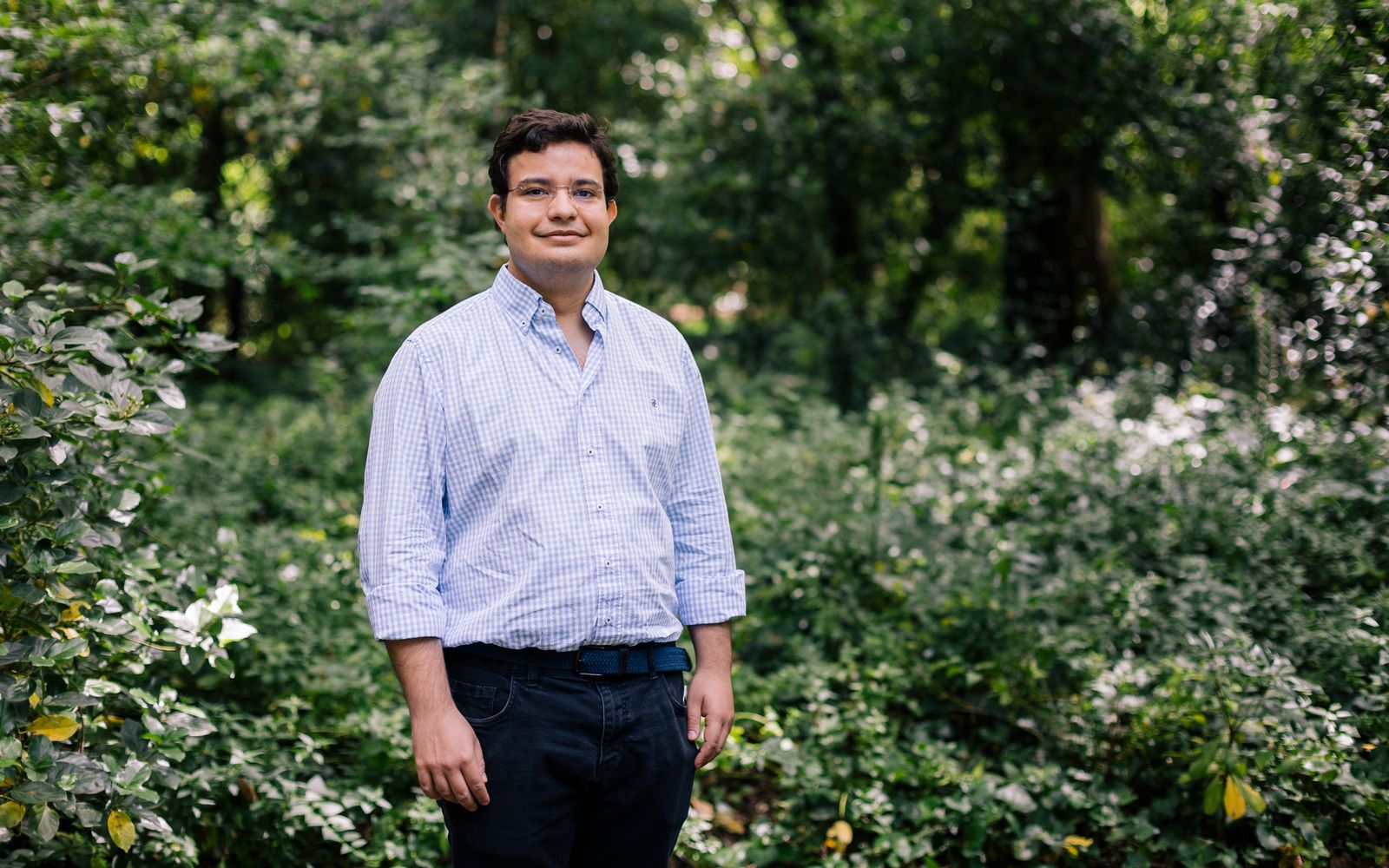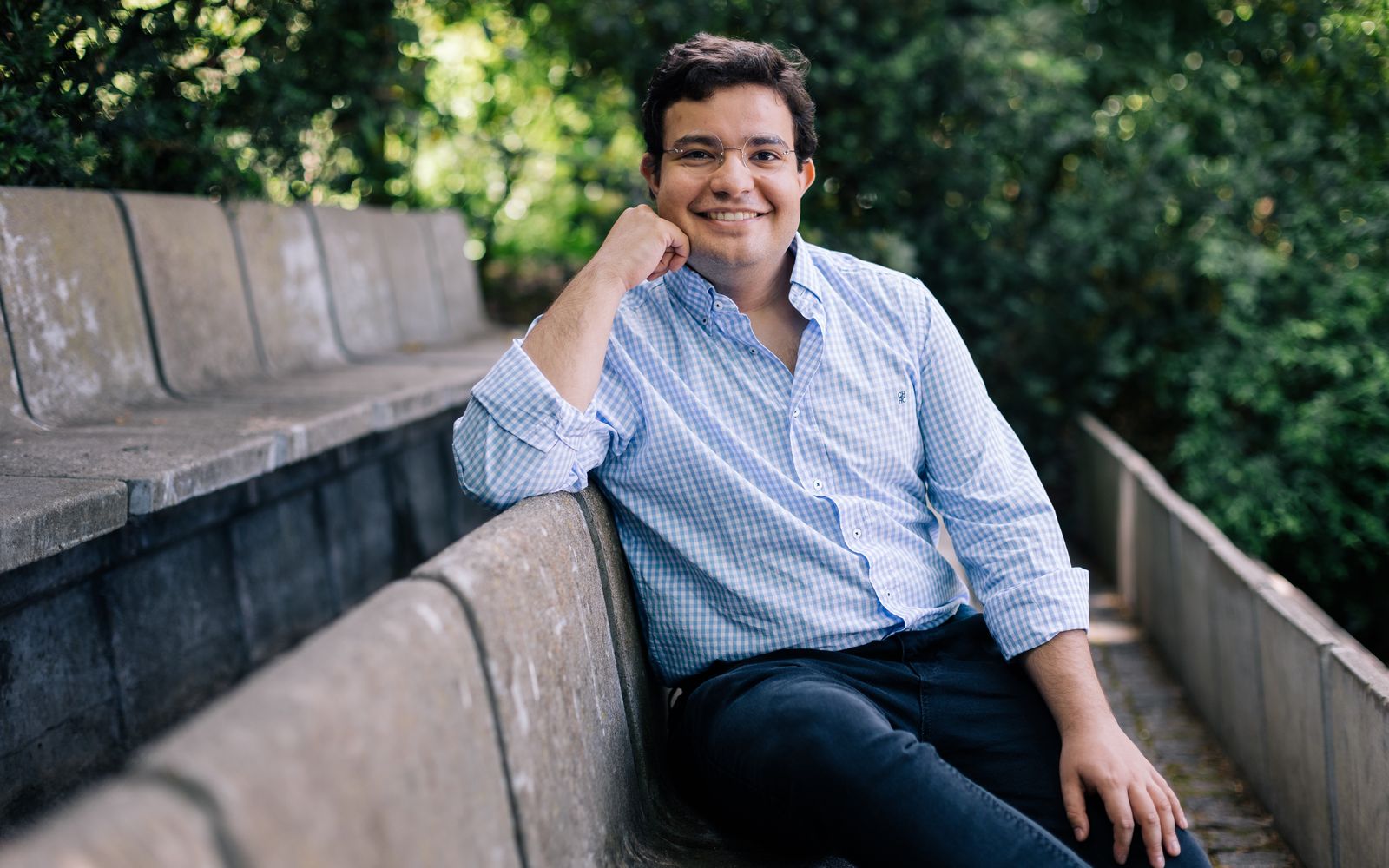“Nowadays, the sciences have to be allied to the humanities”
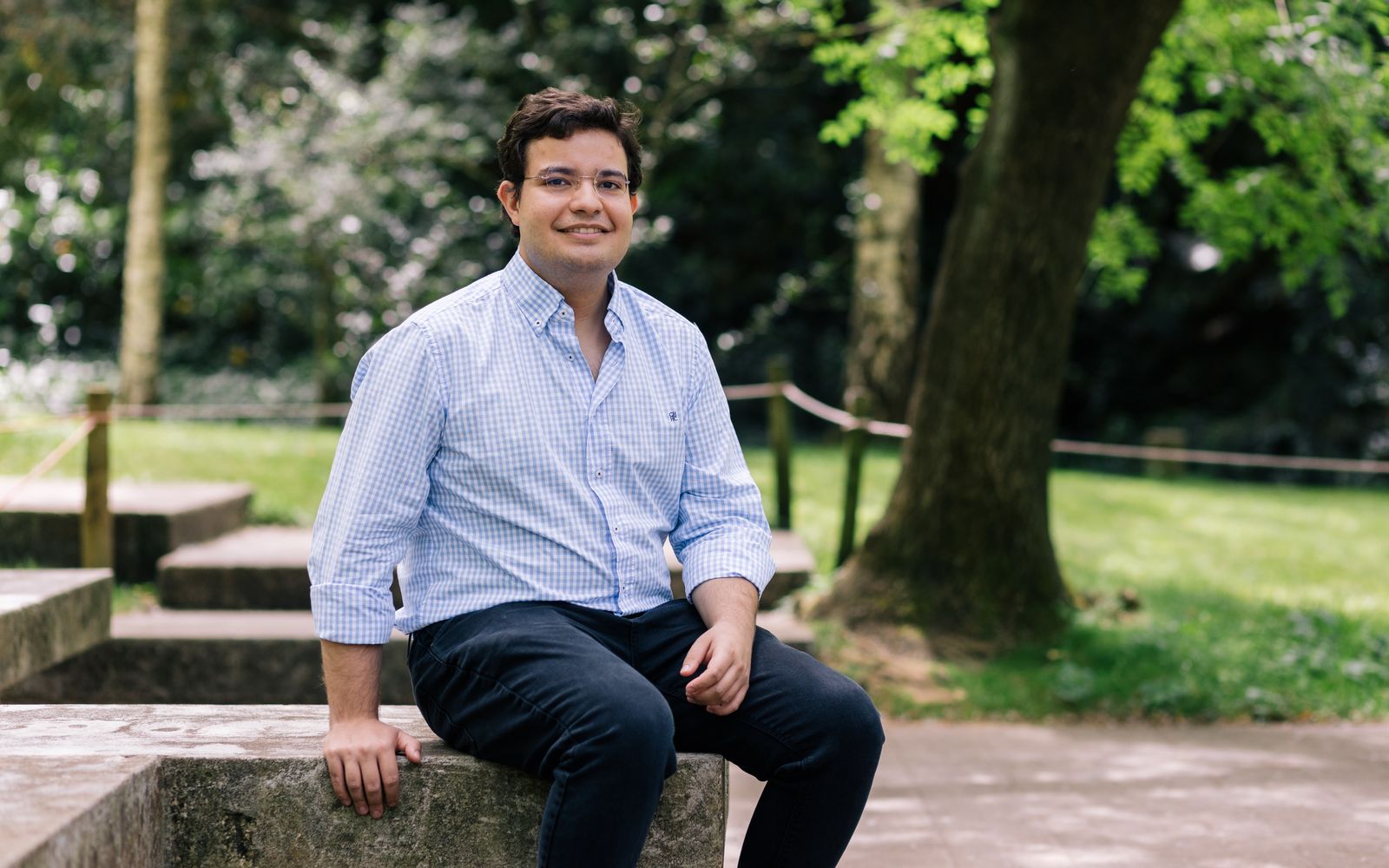
José Maria Covas Lima has been studying abroad for several years – he completed his degree in Biomedical Sciences at Coventry University in England and is now finishing his master’s at the University of Edinburgh – but he does not exclude the possibility of returning to his home country to continue his studies and do research in the field of cellular medicine.
In this interview, he tells us about his cancer battle experience, his plans for the future, about the inspiration he draws from Calouste Gulbenkian and his eclectic vision of the role of a scientist today.in the field of cellular medicine.
You have a degree in Biomedical Sciences and you are finishing your Masters in Regenerative Medicine and Tissue Repair. What made you choose this path?
In essence, it was my own life experience. At the age of four I was diagnosed with high-risk acute lymphoblastic leukemia. I experienced the difficulties regarding treatments and diagnosis methods in Portugal at the time, and this gave rise to my desire to help the healthcare community at the present time, through my career path, so as to improve the quality of life of this new generation of children with cancer and other diseases.
After completing my four-year degree, I wanted to continue in academia and do something related to regenerative medicine, to try to understand what can be improved at a cellular and biological level. The University of Edinburgh had the ideal programme for that.
Why did you choose the UK? How did you benefit from studying abroad?
The United Kingdom has always fascinated me because of the way they have evolved historically, since the Industrial Revolution and at an engineering and technological level. A lot of the medical equipment and knowledge we have today was discovered there – like penicillin or the ultrasound scanner. I thought that I could acquire other tools to eventually improve the situation here in Portugal. But also because I come from a family of doctors, who have already made their contribution to the development of medicine in Portugal. The approach I’m looking for is more research-based, I hope to provide doctors with more resources so that they can do their work. I think that education there aims for a more autodidactic approach, they encourage you to learn for yourself.
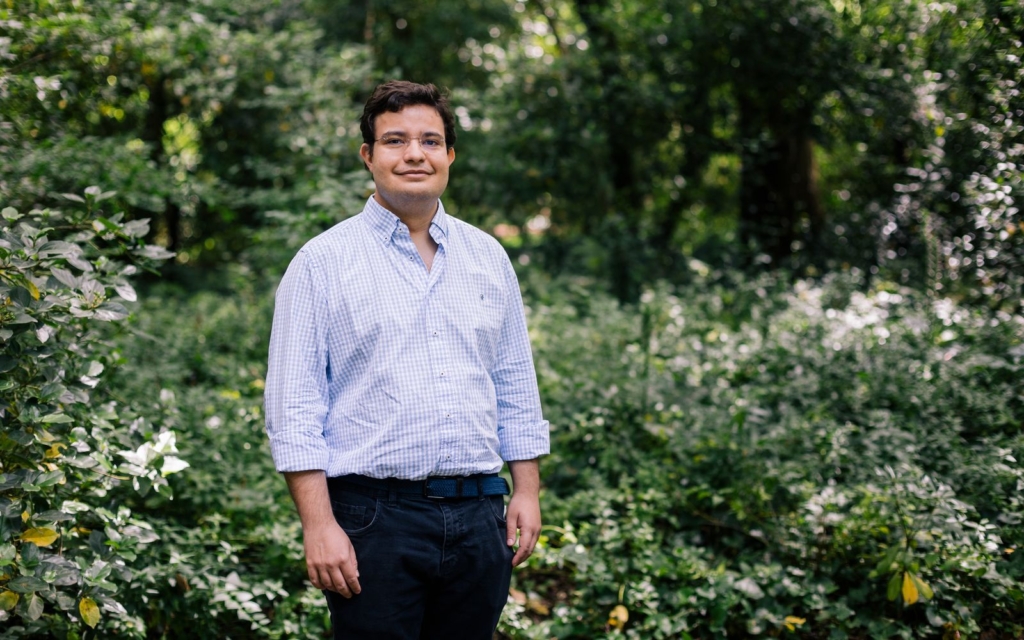
What about future plans?
I’ m now applying for PhD programmes, both in Portugal and abroad. Someone who is carrying out important research is professor João Pedro Magalhães, who is studying, so to speak, that which makes us different from other animals in terms of our ability to resist diseases. How is it that there are animals that manage to spend their whole lives free from disease, or others that can easily regenerate tissue, like the salamander, and even other beings, like the immortal anemone in Japan, which reaches a certain stage of life and manages to reverse ageing and become young again? And if we are, as they say, the superior beings on an evolutionary scale, why haven’t we acquired such abilities? Could it be possible to develop these capabilities?
A sort of superpower. Is this what you hope to discover?
Yes, that would be one of my future goals. But I also appreciate many different aspects of knowledge, so not just biology, I also enjoy History, Religion and Philosophy. I’m a very spiritual person: I think that in terms of ethics, we have to be very cautious in the future regarding what is done within Science. There needs to be regulation in terms of law and ethics; I think this is very important.
What have you learned from your experience as a cancer patient? What contribution would you like to bring to this field?
For me, cancer was a battle, which fortunately I won; but not all people are so lucky. Nowadays, with the medical research that is being done, in places like the Cambridge University Cancer Institute, for instance, where I did research for a year, it is becoming more and more clear that this type of disease is like a heterogeneous forest. Each person has a certain type of change within the same type of cancer, so the treatments of tomorrow have to be individually customised to each patient.
Sometimes it’s not just a matter of surviving the cancer, it’s also a matter of knowing what damage the person is left with and how they can mitigate it. There is currently a lot of emphasis on post-treatment – and this is what I’m focusing on the most.
Where do you see yourself in 10 years?
Once that I am based abroad, I would like to lead my own research group, which would try to combine this laboratory aspect with computer science for the customisation of medicine. I would like to create an international communication network for that purpose and to promote the improvement of healthcare not only in developed countries, but also in those that face more obstacles regarding this field. Perhaps even collaborate with the Instituto Gulbenkian Ciência (IGC) and repay the Foundation for everything it has allowed me to do. Not only on a scientific level, but also on an artistic level. One of the great things that the Gulbenkian Scholarship allowed me to explore was this different side of myself within the humanities by writing.
What do you usually write?
Science fiction and speculative fiction. I use a lot of social criticism, satire, comedy, and also a bit of mysticism, philosophical thought. I published in 2021 my first short story as an author, in an anthology called Sangue Novo (New Blood), which was recently presented at the Porto International Fantastic Film Festival.
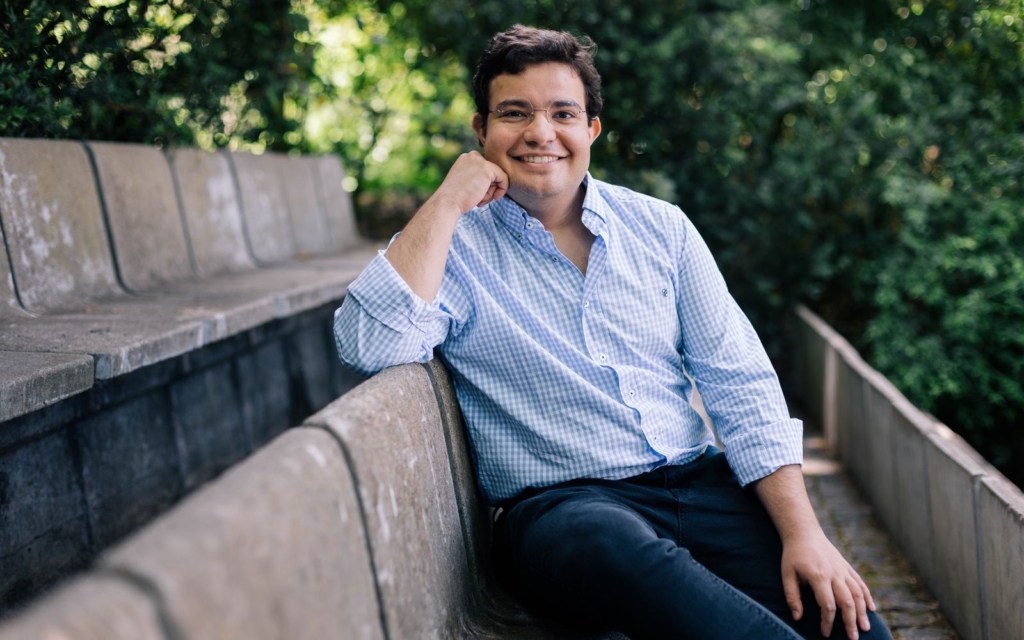
How did you find out about the Gulbenkian Scholarship?
After Brexit a lot of funding for students with temporary residency status was reduced. Then I remembered – because I had already heard about the Gulbenkian Scholarships from my parents’ time, and how important they were for both art and science – that the Gulbenkian Foundation would be the best place to turn to. I am very grateful for this opportunity that I have been given because it allowed things that would not have been possible otherwise: exploring worlds and making discoveries…
How would you describe the benefits that this scholarship brought to you?
This is not only about monetary aid in itself, but also about all the support given at the level of the network of grantees, about being able to meet people from different areas, which is very important in science. For example, to do research at a biological level, on what happens inside the human being, it is necessary to replicate it with animal and artificial models in the laboratory. For that you need engineers, mathematicians. You need people working with Ethics and Law to try to understand if what we’re doing is covered by the regulations. You need people from the media to collaborate with the Government, with other private institutions, with universities or with the population. And all of this was generously made possible by the Gulbenkian Foundation.
Is this link to the Foundation important to you?
Definitely! As a child I spent a lot of time here at Gulbenkian, wandering the gardens, going to the exhibitions. Calouste Gulbenkian’s story is one of my great inspirations; I have always thought of the advice he would give me: ” you must learn a little bit of everything to be able to do all the things you want to do”. I really believe that nowadays the sciences have to be aligned with the humanities, and that’s something you always try to promote here. Who knows, maybe in the future a Nobel Prize in Medicine will be awarded because of the Gulbenkian Foundation.
Who knows, it might be you!
[laughs] Hopefully.

